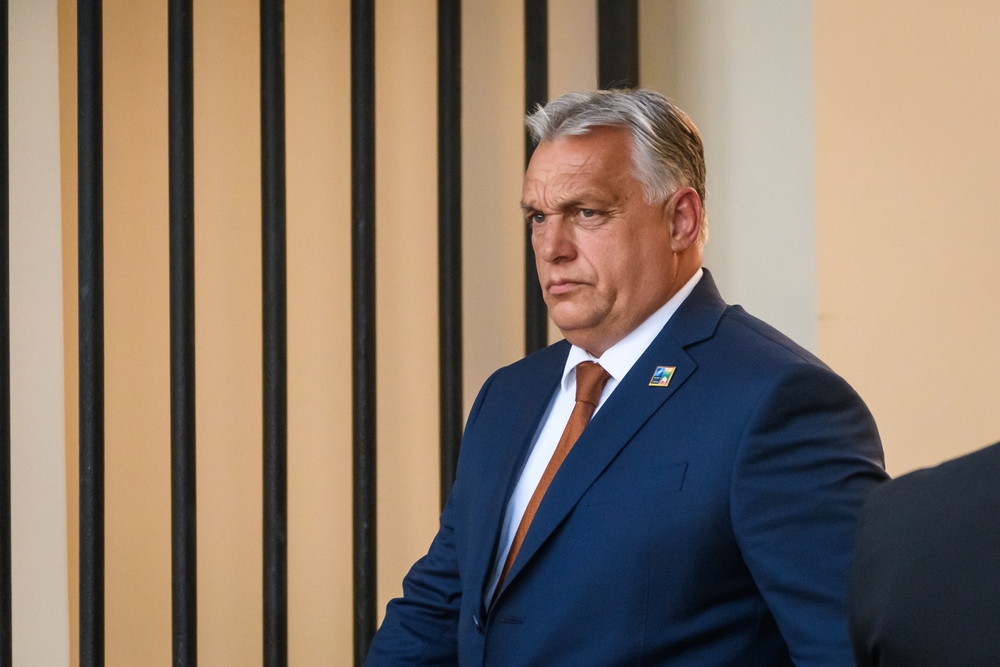Helping Hungary Help Those Most in Need

The local branch of global children’s charity UNICEF will challenge low levels of giving and a difficult environment for NGOs in order to raise funds on World Children’s Day (November 20), executive director Antónia Mészáros tells the Budapest Business Journal.
Antónia Mészáros
Antónia Mészáros has been executive director of UNICEF Hungary for a little more than a year, having joined the organization in September 2017. She says it enjoys very high brand recognition in Hungary, but its citizens are generally unwilling to donate to charities, especially when that money is largely spent abroad.
Indeed, Hungarians are near the bottom of the table in terms of levels of financial support for UNICEF. Interestingly, Mészáros says this is not always the case for most of the region. “The Czech committee, for example, is much more successful. It has 20,000 regular monthly donors. We have 4,000 for the same population size. Poland, Romania, Slovenia and Croatia are also doing much better. Culturally we seem to have a longer way to go.”
Most Vulnerable
But Hungary is a donor country, rather than a receiving one. “The national committee exists primarily to represent the global mission of UNICEF and to raise funds for the world’s most vulnerable children,” as the executive director puts it. Days before our interview, Mészáros had been in Myanmar visiting a camp for displaced Rohingya. “Whatever you think of life in Hungary, its children are not among the most vulnerable,” she says.
The Hungarian government’s well documented suspicion of foreign-funded NGOs is making raising funds here even harder, Mészáros says.
“The nature of public discourse is not helping. It was hard anyway; the rhetoric is making it harder.” It is not unknown for UNICEF fundraisers to have insults hurled at them on the streets, often making some reference to George Soros, the Hungarian-born financier and philanthropist who has become public enemy number one for the ruling Fidesz party. Soros has no connection to UNICEF Hungary, but the mention of human rights can be enough to trigger hostility.
And yet, Mészáros is at pains to point out that UNICEF Hungary itself does not have a fraught relationship with the government. “We work with the Ministry of Human Capacities in a number of local projects, delivering results for Hungarian children in need,” she says. Her organization gets some funding from the government, and also has some shared values with it. Both parties agree, for example, that it is important to help and aid under privileged children in their home countries.
SMS Donations
World Children’s Day will be a chance to make sure it is the children who are front and center. Last year was the first time UNICEF Hungary had officially participated, and it ran 55 different events. This year a similar number of programs are planned, the simplest of which is promoting SMS donations, via the number 136 66. Mészáros says the Hungarian organization doesn’t over use this short code, since local regulations will not allow it to contact SMS supporters, thank and inform them about how their contributions are being spent and to develop a longer-term donor relationship. But as SMS giving is quick, easy and does not require people to give over their credit card details, it has a better chance of success in this particular campaign.
The main theme for the day however is the Child Takeover, which will once again feature a long list of partners, from the Parliament and the Budapest Mayor’s office, through national institutions like the fire, transport and ambulance services all the way to theaters, embassies and big corporates. OTP is again one of the main sponsors. The idea is that children are not just shown around businesses and organizations, but given a chance to run things. In 2017 the Swedish Embassy, for example, gave over its website to a group of children for the day.
But UNICEF’s work is about much more than one day, of course. Mészáros says people tend to associate the non-profit with younger children, but as the organization says on its website: “UNICEF works in 190 countries and territories to save children’s lives, to defend their rights, and to help them fulfil their potential, from early childhood through adolescence.”
Pilot Scheme
At the UN General Assembly this September UNICEF announced its latest campaign, Generation Unlimited, which will target children and young adults aged between ten and 24. UNICEF Hungary is the only national committee being asked to run a pilot scheme, with seed money from the international organization, the Hungarian government and a few corporate partners.
Youth will participate in “a series of workshops, where we help them identify the challenges they face , and come up with local solutions themselves. Selected teams will get funding and mentoring to develop their ideas, with the best team entered into a global competition.” Mészáros explains. “We are still looking for corporate partners to help us secure long-term funding, so we would love to hear from any businesses that want to get involved.”
Other projects UNICEF Hungary has been running include child-rights education classes, supported by Telenor, a HelpApp for children at risk of violence, a program strengthening disadvantaged youth with a series of special cultural and sports experiences – launched in September with the help of Ricky Martin, UNICEF Global Goodwill Ambassador – and a campaign against cyberbullying, in part through the efforts of 16 young YouTube influencers, created with the support of Generali.
Ready for a Change
Antónia Mészáros may not have been the obvious choice to take over as executive director at UNICEF Hungary. Certainly, she didn’t think so. Her background is as a journalist, tv anchor, writer, and documentary filmmaker. Her most recent work was as an anchor for local station ATV, and prior to that a presenter for MTV (that’s Hungarian Television, not the music channel). Before that she worked for the BBC for six years, contributing to some of its flagship news and current events programs such as “Panorama” and “Newsnight” among others.
“I was ready for a change,” she says. And yet, when the UNICEF position was first mentioned to her, she was initially skeptical. “I had never managed a large organization and I did not have much fundraising experience,” she says. But the more she researched it and thought about it, the more interesting the idea became. “It is a wonderful organization, and I always had an appreciation for what it did and stood for. It is a privilege to be a part of this effort now.”
For more information on the World Children’s Day, see unicef.hu/gyerekhang (on Hungarian events, in Hungarian language only) or unicef.org/world-childrens-day • To donate HUF 500 via SMS just dial 136 66.
SUPPORT THE BUDAPEST BUSINESS JOURNAL
Producing journalism that is worthy of the name is a costly business. For 27 years, the publishers, editors and reporters of the Budapest Business Journal have striven to bring you business news that works, information that you can trust, that is factual, accurate and presented without fear or favor.
Newspaper organizations across the globe have struggled to find a business model that allows them to continue to excel, without compromising their ability to perform. Most recently, some have experimented with the idea of involving their most important stakeholders, their readers.
We would like to offer that same opportunity to our readers. We would like to invite you to help us deliver the quality business journalism you require. Hit our Support the BBJ button and you can choose the how much and how often you send us your contributions.









